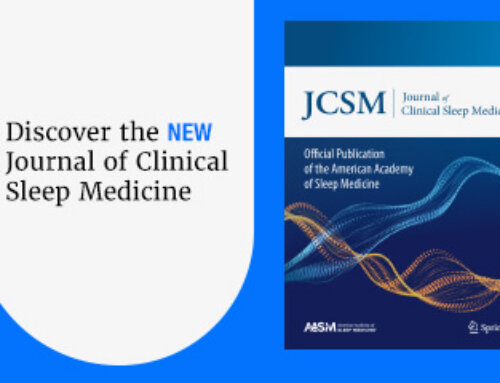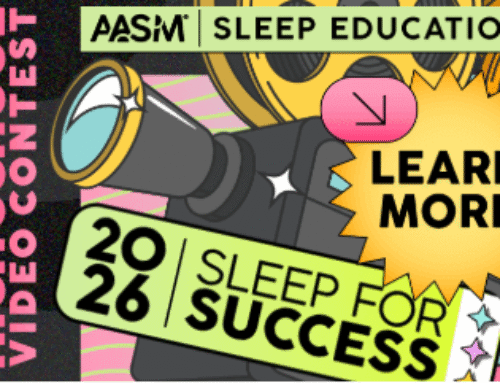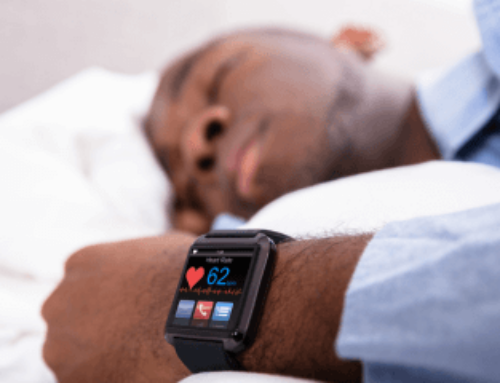The American Academy of Sleep Medicine (AASM) organized and coordinated a multi-society initiative involving 20 organizations to develop and submit a comprehensive comment letter in response to the draft CPAP technology assessment and appendix posted recently by the Agency for Healthcare Research and Quality (AHRQ).
AHRQ posted the draft CPAP assessment on April 1, indicating that the Centers for Medicare & Medicaid Services (CMS) had requested it. The 155-page document, based on a systematic review of the scientific literature, analyzed measures of sleep-disordered breathing, identified research gaps, and made a statement in the conclusion that, “The published evidence mostly does not support that CPAP prescription affects long-term, clinically important outcomes.”
Long-term Outcomes Research in OSA Discussion
During this panel discussion, held June 13, 2021, during the Virtual SLEEP 2021 annual meeting, content experts reviewed the findings of the draft CPAP technology assessment that was posted recently by the AHRQ. The moderators also summarized the multi-society response coordinated by the AASM, and they discussed approaches the sleep research community can take to address knowledge deficiencies raised by the report.
Updated June 17, 2021
The 20-page multi-society comment letter emphasized that the AHRQ conclusion that there are no significant benefits from CPAP treatment does not reflect the totality of available evidence. Therefore, misinterpretation of the draft report, as currently written, will have detrimental repercussions for the care of millions of Americans with OSA receiving benefit from CPAP therapy now and in the future. The letter provides specific recommendations to address these concerns and asks AHRQ to consider revising the draft report prior to final publication to avoid misinterpretations or the appearance of bias.
The comment letter addresses the following concerns:
- Excessive sleepiness was not considered a clinically important, patient-centered, long-term outcome.
- Important data on motor vehicle crashes was not considered.
- Improvement in blood pressure was not considered a clinically relevant outcome.
- Analyses of the apnea-hypopnea index (AHI) as an intermediate outcome had potential limitations.
- The future research section did not adequately consider the barriers to conducting randomized controlled trials (RCTs).
- The summary statements were unclear.
AHRQ stated that the report is intended to help health care decision makers make well-informed decisions that improve the quality of health care services. However, AHRQ also noted that the report is not intended to be a substitute for the application of clinical judgment.
The AASM is extremely grateful to the joint writing group members, who invested an incredible amount of time and effort in drafting and revising the letter over the past two weeks: Susheel Patil, MD, PhD (Chair, AASM representative); Peter Gay, MD (CHEST representative); Karin Johnson, MD (American Academy of Neurology representative); R. John Kimoff, MD (American Thoracic Society representative); and Allan Pack, MBChB, PhD (Sleep Research Society representative).
The AASM also thanks the following organizations for supporting this initiative and signing on to the comment letter:
- Alliance of Sleep Apnea Partners
- American Academy of Dental Sleep Medicine
- American Academy of Neurology
- American Association for Respiratory Care
- American Association of Sleep Technologists
- American College of Chest Physicians
- American Sleep Apnea Association
- American Thoracic Society
- Asian Society of Sleep Medicine
- Australasian Sleep Association
- Board of Registered Polysomnographic Technologists
- California Sleep Society
- Canadian Sleep Society
- European Respiratory Society
- European Sleep Research Society
- Maryland Sleep Society
- Sleep Research Society
- Southern Sleep Society
- World Sleep Society
The comment period closed at 5 p.m. on April 23. AHRQ has not indicated when a final draft will be posted. Public comments and the report authors’ responses to the comments (the “disposition of comments”) will be publicly posted on the Technology Assessment Program website within three months after the associated final report is posted.
Questions or comments about the letter can be submitted to coding@aasm.org.
Updated April 26, 2021





